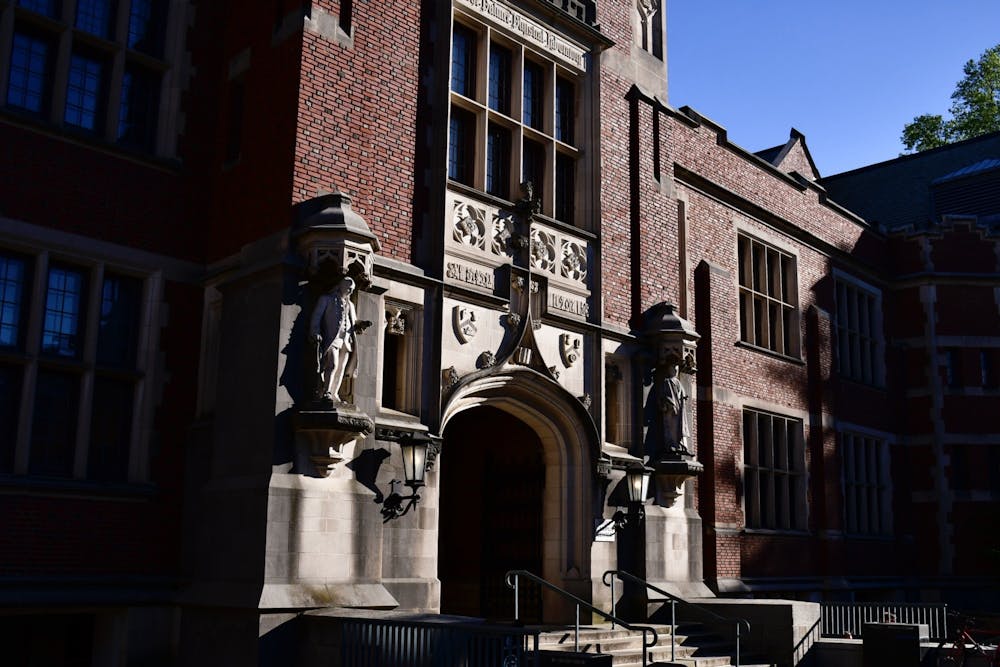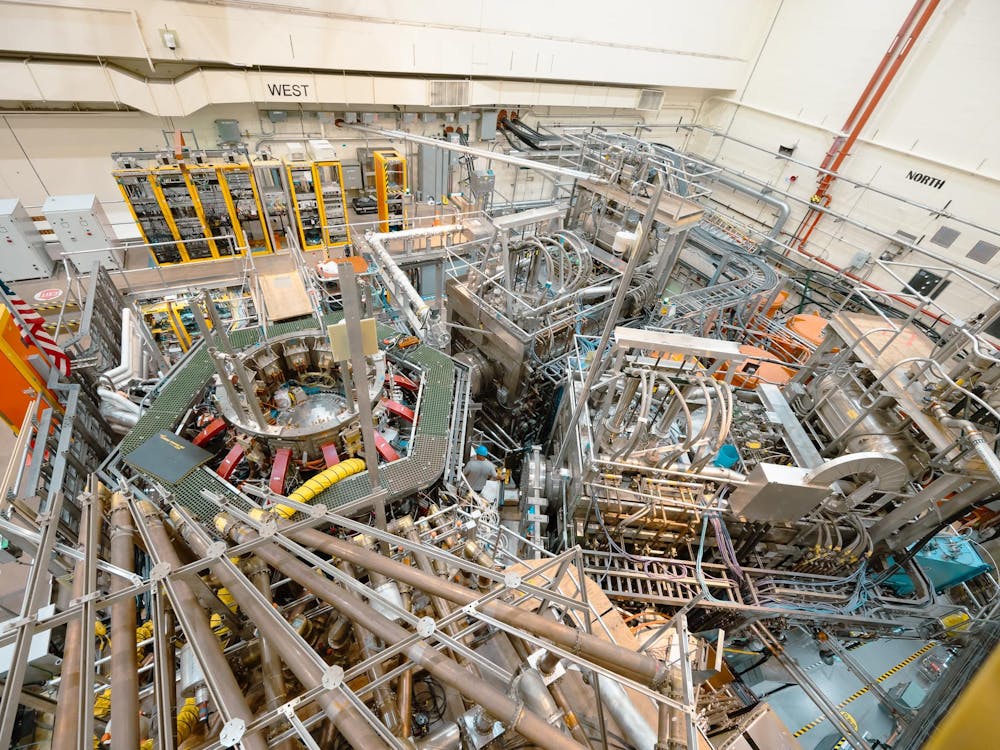During the Nov. 9 Council of the Princeton University Community (CPUC) meeting, Deputy Dean of the College Elizabeth Colagiuri announced that the University has not lengthened next semester’s spring recess, which will run from March 13-16.
“Faculty instituted shortened breaks this academic year as a public health measure to inhibit off-campus travel in the middle of the term,” Colagiuri said, adding that the University is “concerned about student wellness” and will consider mental health along with public health precautions as it reviews the spring calendar.
Though President Christopher L. Eisgruber ’83 did not provide an update on plans for spring instruction, he said the University is working to improve the on-campus COVID-19 testing process.
“That will be important to turnaround times and ensure our capacity,” he added.
According to Colagiuri, the University is coordinating with academic departments to resume laboratory research and laboratory-based coursework. She emphasized that there is no uniform standard by which all departments can restart research.
“All of the labs need to maintain six feet of social distancing for all occupants, but each lab configuration is different and the nature of the work that goes on in each lab is different,” Colagiuri said.
She added that the University is considering whether “the undergraduate has the necessary safety training to operate in the lab and to use whatever equipment is there” and, if not, whether “it’s possible for them to get that training while maintaining social distancing.”
Provost and Professor of Psychology and Public Affairs Deborah Prentice announced that the University will not see a change in its budget this year.

She said that the endowment return of 5.6 percent for this fiscal year “put [the University] in a good place for next year” and added that the administration never alters the operating budget — which is decided in the spring — in response to endowment returns.
Regarding the budget, members of the Resources Committee, chaired by Professor Blair Schoene, plan to meet with the Board of Trustees’ Committee on Finance to discuss divestment from fossil fuel companies.
The Resources Committee recently formed a subcommittee to consider a proposal from Divest Princeton, which describes itself as “a coalition of students, faculty, and alumni calling on Princeton University to divest our endowment from fossil fuel companies and reinvest responsibly.”
In particular, Divest Princeton calls on Nassau Hall to divest all direct and indirect holdings from fossil fuel companies and prohibit academic associations between University researchers and such companies. The CPUC Resources Committee, which has examined relationships between campus researchers and fossil fuel companies, is seeking to determine whether the proposal fits within the University’s plan to achieve carbon neutrality by 2046.

Colagiuri concluded the meeting’s submitted question-and-answer portion by announcing a new hiring and timesheet system, which will include higher student wages. She added, however, that if the spring semester remains virtual, “remote employment opportunities will stay mostly the same,” with around 1,000 undergraduates holding online positions, “mainly because the market for the jobs we don’t expect would increase substantially.”
Eisgruber then introduced Dean of the School of Engineering and Applied Science Andrea Goldsmith, who will also serve as the LeGrand Doty Professor of Electrical Engineering. Goldsmith, who previously taught at Stanford University, began her term on Sept. 1.
Goldsmith reflected on her aspirations, beginning with a quip about the EQuad’s location.
“We are bringing engineering closer to the center of campus, where not only can engineering serve as a hub for interactions across disciplines within engineering but also to the sciences, to the social sciences, and to the humanities,” she said.
Goldsmith noted that she has “devoted a lot of time in the profession of engineering” to advance diversity and inclusion.
“I believe that engineering cannot fulfill its full potential without having diverse engineers around the table. And so, I’m committed to enhancing the diversity of the faculty and of the students and postdocs,” she said.
Afterwards, Executive Director of Environmental Health and Safety (EHS) Robin Izzo provided a COVID-19 update.
She emphasized that testing results take 24-72 hours to obtain, and that delays are most commonly caused by failing to scan the barcode that each test carries. Though results do not arrive sooner if a person tests positive, she said, such results are communicated immediately.
Those who test positive are asked to provide a list of their close contacts — people who cumulatively spent 15 minutes less than 6 feet away from that person in the past 24 hours. These contacts are notified, but the identity of the person who tested positive is not shared. Contact tracing usually takes less than 24 hours, she added.
EHS is also implementing building notifications. If a person who tests positive reports having spent time in a certain building, EHS will contact people in that building, again not sharing the person’s identity.
The state of New Jersey requires all contacts to quarantine for 14 days, regardless of whether they test negative during that period. The state also updated travel restrictions ahead of Thanksgiving. There are 43 states and 4 territories on New Jersey’s travel advisory list, and visitors returning from these locations are required to quarantine for 14 days. Connecticut, Pennsylvania, and Delaware are on the list, but due to the frequency of travel between these states, a two-week quarantine is not required in all instances.
New Jersey Gov. Phil Murphy also issued an Executive Order requiring staff to complete a “symptom check” before coming to work. University faculty and staff must comply with this step before arriving on campus.
The CPUC also heard updates on the University’s efforts to address systemic racism, sexual assault and safety, and more information on Wintersession programs.
Prentice highlighted hiring initiatives undertaken by academic departments, which have submitted candidates to Dean of the Faculty Sanjeev Kulkarni as part of the Target of Opportunity Program. Prentice added that the University is “looking for a bumper crop year in terms of hiring racial minorities to the faculty this year.”
The University is also conducting a benefits and policy review “through the lens of racial equity.” A new website contains more information on the University’s efforts to promote racial equity.
Vice President for Campus Life Rochelle Calhoun gave an update on the ad hoc Committee on Sexual Climate, Culture, and Conduct. Membership consists of faculty, staff, and both undergraduate and graduate students.
“More than 60 University administrators have begun training in restorative justice practices, and we plan to include student leaders as we round into the spring,” she said, adding that the Committee is focused on “addressing ongoing harm.”
This fall, the Committee is aiming to “create an environment where everyone can thrive, reshape and reimagine gatherings to promote a balance of power, normaliz[e] conversations about sexual self-determination.”
This was the second CPUC meeting of the semester. The next will be held on Dec.14 at 4:30 p.m. EST.








